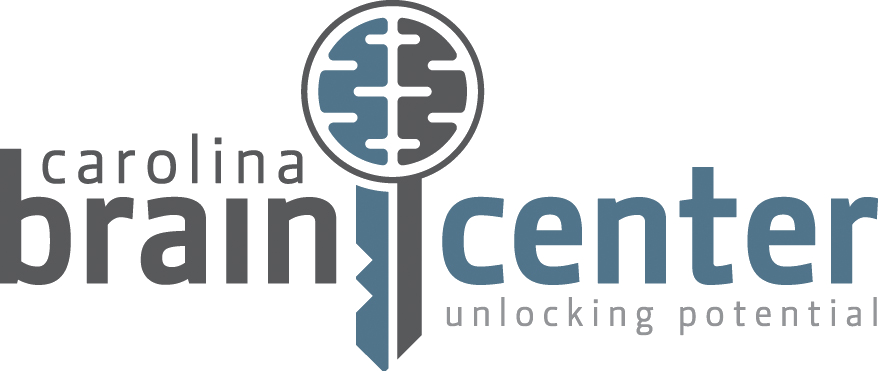 Concussions, often referred to as mild traumatic brain injuries (mTBIs), are commonly seen in contact sports, motor vehicle accidents, and falls. While they are labeled “mild” due to the absence of structural damage visible on standard brain imaging, concussions can have long-term consequences if not properly addressed. The neurometabolic cascade triggered by the concussion results in complex biochemical changes that, if left untreated, can lead to cognitive deficits, mood disorders, and other lasting impairments. Early intervention following a concussion is critical to preventing these long-term issues.
Concussions, often referred to as mild traumatic brain injuries (mTBIs), are commonly seen in contact sports, motor vehicle accidents, and falls. While they are labeled “mild” due to the absence of structural damage visible on standard brain imaging, concussions can have long-term consequences if not properly addressed. The neurometabolic cascade triggered by the concussion results in complex biochemical changes that, if left untreated, can lead to cognitive deficits, mood disorders, and other lasting impairments. Early intervention following a concussion is critical to preventing these long-term issues.
This article explores the significance of early intervention in managing concussions, emphasizing how prompt and proactive treatment strategies can mitigate the risk of developing long-term cognitive impairments. It also highlights key research supporting the efficacy of early interventions.
The Neurometabolic Cascade and Cognitive Impairments
The brain is particularly vulnerable to the effects of a concussion due to the biochemical changes that occur immediately after impact. The neurometabolic cascade, a process characterized by the release of excitatory neurotransmitters, mitochondrial dysfunction, and oxidative stress, sets the stage for both short- and long-term damage. This cascade results in an energy crisis in the brain, where neurons struggle to generate sufficient ATP (adenosine triphosphate) to function properly. The energy crisis is exacerbated by calcium influx into cells, further damaging mitochondria and impairing cellular function.
In the days following a concussion, the brain remains in a state of heightened vulnerability, particularly to secondary injuries. During this time, the risk of developing long-term cognitive deficits, such as memory problems, reduced attention span, and difficulties with executive function, increases significantly. Research has shown that individuals who do not receive proper intervention in the acute phase of injury are more likely to experience persistent cognitive impairments months or even years later.
The effects of these impairments can range from subtle to profound. Many patients with Post-Concussion Syndrome (PCS) report difficulties with concentration, memory, and problem-solving, all of which can significantly impact daily life and occupational performance. Early intervention aims to disrupt this cascade of damage and provide the brain with the support it needs to heal before long-term effects take hold.
Why Early Intervention is Critical
The first 24 to 72 hours after a concussion are crucial for preventing long-term cognitive deficits. This window represents a period when the brain is most vulnerable but also most responsive to therapeutic interventions. The goal of early intervention is to address the neurometabolic cascade before the brain sustains lasting damage. Without treatment, the inflammatory and oxidative processes initiated by the cascade can cause irreversible harm to neuronal structures, leading to persistent cognitive and emotional impairments.
A study published by the National Institutes of Health (NIH) in 2021 emphasizes the importance of initiating treatment as soon as possible following a concussion. The study found that patients who received early intervention within the first 48 hours of injury had significantly better cognitive outcomes compared to those who delayed treatment. Early intervention was shown to reduce the duration and severity of symptoms, improve cognitive function, and lower the risk of developing chronic neuroinflammation.
Therapeutic Approaches to Early Intervention
1. Rest and Gradual Resumption of Activity
One of the earliest interventions recommended for concussions is cognitive and physical rest. This allows the brain time to recover from the initial injury without added strain. Patients are typically advised to avoid activities that require intense mental effort, such as studying, reading, or screen time, as well as strenuous physical activities. However, prolonged rest beyond 48 hours may delay recovery, so it is crucial to gradually reintroduce light physical and cognitive activities under the guidance of a healthcare professional.
Research has shown that controlled reintroduction of light aerobic exercise can improve cerebral blood flow and help regulate the autonomic nervous system, both of which are disrupted by concussion. This gradual increase in activity promotes neuroplasticity, the brain’s ability to reorganize and form new neural connections, which is essential for cognitive recovery.
2. Nutritional Interventions
Nutritional strategies can also play a significant role in early intervention for concussion recovery. Proper nutrition supports mitochondrial function, reduces inflammation, and provides the brain with the nutrients necessary for cellular repair. Omega-3 fatty acids, for example, have been shown to reduce neuroinflammation and improve synaptic plasticity, both of which are critical for cognitive recovery.
Researchers found that supplementation with omega-3 fatty acids in the acute phase of a concussion resulted in improved cognitive function and reduced symptoms of depression and anxiety. Similarly, the ketogenic diet, which shifts the brain’s energy source from glucose to ketones, may offer neuroprotective benefits by providing an alternative energy source to support mitochondrial health.
3. Hyperbaric Oxygen Ketone Therapy (HBOKT)
Hyperbaric Oxygen Ketone Therapy (HBOKT) is another intervention that has shown promise in early concussion treatment. By delivering high concentrations of oxygen to the brain, HBOT promotes healing by increasing oxygen availability in areas affected by reduced cerebral blood flow and mitochondrial dysfunction. The NIH has published several studies supporting the use of HBOT to reduce inflammation and enhance cognitive function in patients with mTBI.
HBOT has been shown to improve cognitive recovery by promoting mitochondrial function and reducing oxidative stress. It also accelerates the repair of damaged neuronal pathways, which is critical for restoring cognitive function after a concussion.
4. Low-Level Laser Therapy (LLLT)
Low-Level Laser Therapy (LLLT), also known as photobiomodulation, uses light energy to stimulate cellular repair and improve mitochondrial function. LLLT has been shown to reduce neuroinflammation, enhance synaptic plasticity, and promote the growth of new neurons (neurogenesis). These effects are particularly beneficial for patients with concussions, as they address both the acute and long-term aspects of brain recovery.
LLLT can significantly improve cognitive performance and reduce the duration of symptoms in patients who receive treatment in the acute phase of injury. The light energy penetrates the scalp and is absorbed by mitochondria in brain cells, stimulating ATP production and reducing oxidative stress, which accelerates recovery.
At Carolina Brain Center, we specialize in using the Erchonia Laser to treat our patients. The Erchonia laser promotes science-backed healing in concussion patients. This non-invasive treatment not only enhances mitochondrial function, but improves cerebral blood flow, and accelerates recovery from concussion-related symptoms such as headaches, cognitive impairment, and dizziness.This laser is one of the many ways that we implement a multipoint approach to concussion care.
The Role of Education in Early Intervention
In addition to medical interventions, education is a key component of early concussion management. Patients and their families should be informed about the risks associated with concussions and the importance of seeking early treatment. Many individuals are unaware of the long-term cognitive risks associated with concussions and may not seek medical attention unless symptoms become severe. Educating patients about the neurometabolic cascade and the potential for long-term damage can encourage them to pursue early interventions that may prevent lasting cognitive deficits.
Healthcare providers should also emphasize the importance of follow-up care. Concussions are dynamic injuries, and symptoms can evolve over time. Regular follow-up appointments allow healthcare professionals to monitor recovery, adjust treatment plans, and address any emerging cognitive or emotional issues.
Our Approach in Early Intervention of Concussion Injury
At Carolina Brain Center in Raleigh, NC, we understand the importance of early intervention in concussion recovery. By addressing the neurometabolic cascade and preventing long-term damage, we help patients recover faster and with fewer lasting effects. Our personalized approach integrates therapies such as low-level laser therapy, hyperbaric oxygen ketone therapy, and nutritional interventions to provide a comprehensive recovery plan.
If you’ve recently suffered a concussion, don’t wait to seek treatment. Early intervention is key to preventing long-term cognitive deficits. At Carolina Brain Center, we are committed to helping you recover fully and efficiently. To start the conversation, contact us today. The knowledge and care you receive will put you on the path to a faster, healthier recovery.

